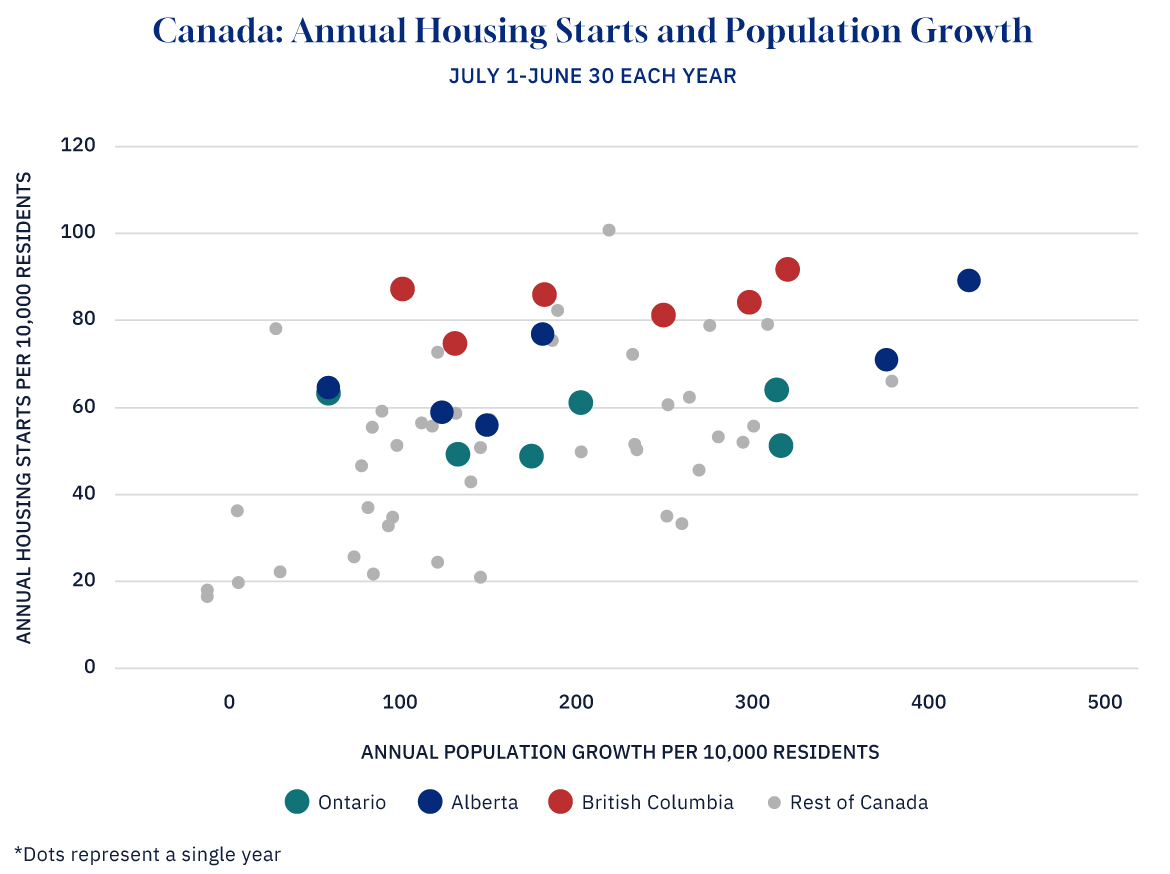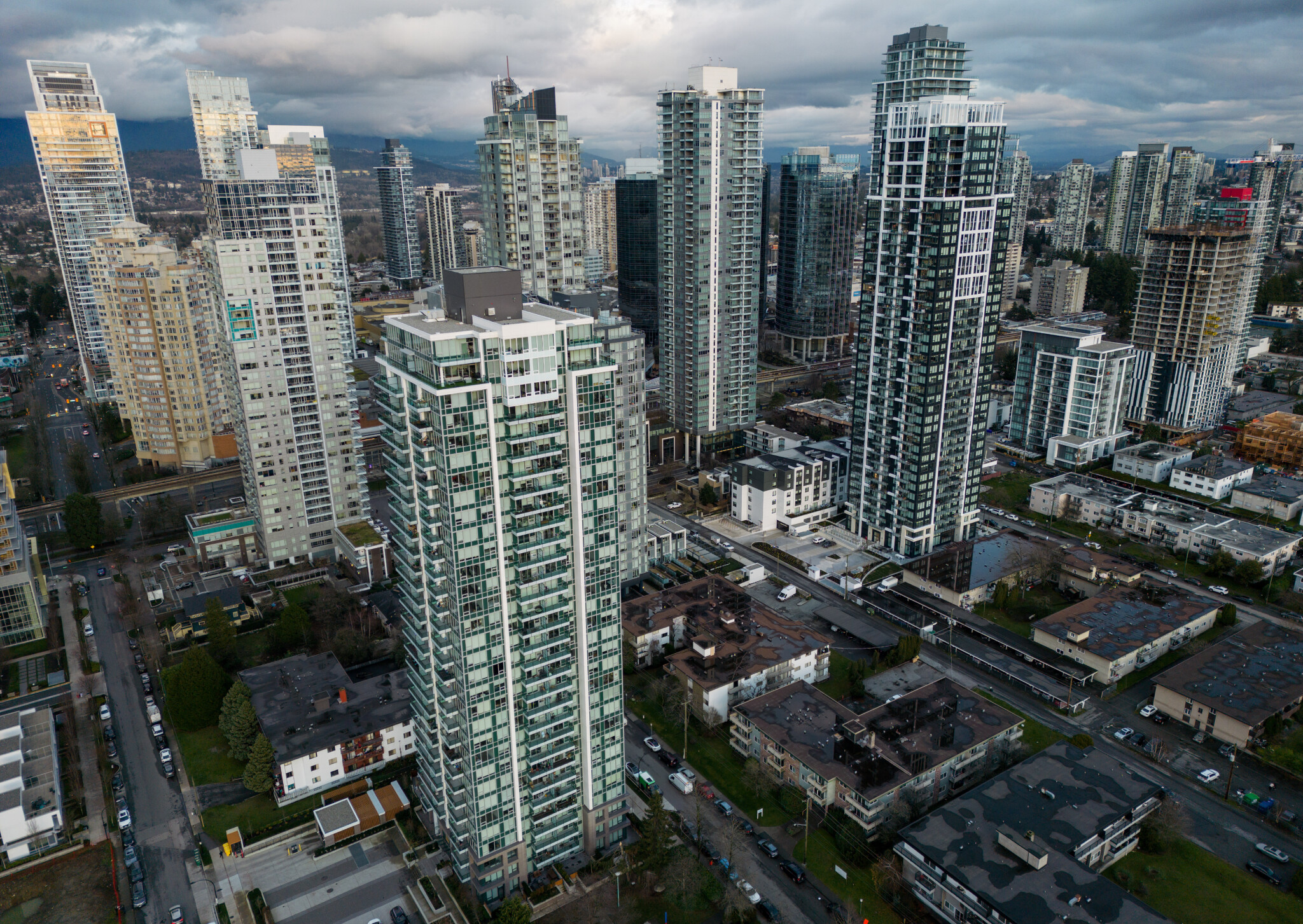Canadian governments, whether they be federal, provincial, or municipal, need to understand that Canada’s housing dysfunction is caused, in large part, by excessive regulations and taxes, which render many housing projects unviable.
Over the past decade, we have seen development-related taxes rise faster than inflation, foreign buyer bans, increasingly stringent rules on short-term rentals, vacant home taxes, byzantine municipal rules like angular plane requirements, and hundreds of other well-intentioned ideas that add to the cost and risk of building homes in Canada.
The irony is that many of these rules, which by their very nature reduce rights and freedoms, were put in place to help preserve the human right to housing, which is enshrined in both Canadian and international law. There are times, of course, when rights are in conflict and governments must reduce rights in one area to enhance them in another. But given the persistence of the housing crisis, and persistently high and rising homelessness in Canada, we have experienced a reduction in freedoms—while also moving farther away from the right to housing—as those restrictions have slowed the supply of new housing.
As we look to solve the housing crisis, we do not need a further reduction in Canadians’ rights. Rather, we need to give Canadians the freedom to build housing.
When it comes to housing policies that diminish the rights and freedoms of Canadians, Ontario may be the worst offender. A Canadian Home Builders’ Association study found that Ontario cities have the highest development charges in all of Canada while also having the slowest approval timelines. Of the 21 communities the CHBA examined, the four worst performers were in Ontario, while the top three were Edmonton, Charlottetown, and Calgary.
Some of Ontario’s poor performance lies at the feet of municipal governments, such as Windsor’s refusal to accept even the modest deregulations in the federal Housing Accelerator and Oakville’s return of Housing Accelerator funds after failing to implement changes.
However, the decisions that municipal governments make are under provincial laws and regulations, such as the Development Charges Act, so the province is ultimately responsible. And the province is certainly responsible for high land-transfer taxes, refusals to legalize gentle density, and failing to fix a broken Landlord and Tenant Board.
The province’s restricting housing rights and freedoms through excessive taxes and regulations has directly led to an increase in homelessness, which the province then proposes to fix by applying the notwithstanding clause to erode the rights of those experiencing homelessness. When will the provincial government recognize that the solution to a lack of freedoms is not a further reduction of rights?
There is an erroneous belief that Ontario’s housing crisis is particularly acute because Ontario’s population growth rate is substantially higher than in other provinces. However, in each of the last six years, Ontario’s population growth rate has been nearly identical to that of British Columbia and lower than Alberta’s, while homebuilding per capita has been consistently and substantially lower in Ontario than in the other two provinces.

Graphic credit: Janice Nelson.
The situation is likely to get worse before it gets better. Although housing starts are up this year in eight of 10 provinces, Ontario has experienced a substantial decline in housing starts, thanks to a combination of poor economic conditions and overly restrictive policy, while British Columbia has experienced a modest decline.
Ontario’s housing shortage is harmful to those needing a place to call home and is harmful to the economy. Over the last four years, 100,000 more Ontarians have moved to other provinces than have moved from those provinces to Ontario. Those leaving are disproportionately the young professionals, from doctors to carpenters to coders, that the province needs to thrive.
Ontario’s wounds are self-inflicted, as it continues to try to solve a problem caused by a lack of freedom and rights with even more restrictions on those freedoms. Instead, it should prioritize freedom and look to reduce rules and taxes that are inconsistent with the human right to housing.









